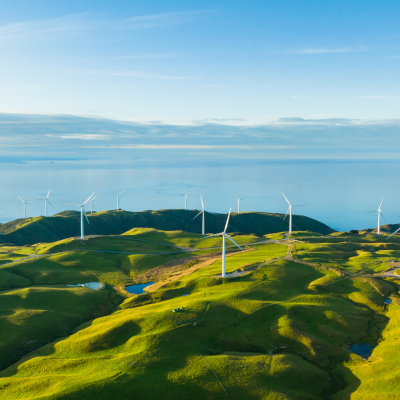Indonesia has been at the forefront of climate change. The government of Indonesia (GOI) has charted its long-term strategy for low carbon and climate resilience by 2050 and becoming carbon neutral by 2060. The government of Indonesia submitted the first draft of nationally determined contributions (NDC) in 2016 and then updated NDC in 2021. The Indonesian emission reduction target has been set at 29% with the national effort and 41% with international support.
The government of Indonesia has created an innovative financing mechanism and allocated a budget to concerned ministries and agencies for climate change mitigation and adaptation. The average climate change budget allocation in the 2018-2020 state budget is IDR 102.65 trillion per year. Approximately 88% of the budget was used to finance green infrastructure. The balance portion is used to finance supporting activities such as regulations and policies, R&D, capacity building and community empowerment.
Indonesia is the world’s top exporter of thermal coal and took a gradual approach to price and capping greenhouse gas emissions as it launched its first carbon tax and trade policy in 2021. As part of the carbon policy, Indonesia has mandated those emitting above the cap is required to purchase offsets or pay a tax of 30,000 Indonesian rupiahs (US$2.10) per metric ton of carbon dioxide equivalent. The introduction of carbon tax contemplates taxpayers, participating in the cap-and-trade system by reducing their portion of a carbon tax.
The tax is payable on (a) the purchase of goods containing carbon and (b) activities that produce GHG emissions. Goods tax will be due at the time of purchase, and the activities tax will be assessed annually. Taxable goods are the ones containing carbon but are not limited to fossil fuels. Activities that produce carbon emissions in target sectors are taxable as well.
The energy market in Indonesia is subjected to various government interventions, including domestic market obligations, price caps and subsidies. Consumers in Indonesia pay subsidized prices for gasoline and electricity. The introduction of carbon taxes may increase the costs of utilities; hence Indonesian Government needs to counterbalance costs by providing incentives to promote renewable energy and energy-efficient systems across the country.
Apart from carbon pricing, the Indonesian government passed the ‘Government Regulation on Environmental-Economic Instruments in 2017 that provide a basis for ETS implementation. The regulation sets a mandate for an emissions and/or waste permit trading system to be implemented by 2024.
Indonesian Ministry of Energy and Mineral Resources communicated the launch of a voluntary emissions trading trial for the power sector in March 2021, which ran from March to August 2021. Eighty coal-fired power plants were expected to participate in the program, out of which 59 are owned by the state electricity company PLN. The voluntary program is considered a pilot and is focused on familiarizing stakeholders with the development of a national ETS, ETS compliance procedures, and offset mechanisms.
The overall cap for the pilot will be intensity-based, with different intensity benchmarks for three subgroups: generators with a capacity between 100 and 400 MWh, with a capacity of over 400 MWh, and generators (with a capacity between 100 and 400 MWh) that are located directly next to a coal mine. Benchmarks are based on the weighted average of GH emissions intensity of power generators in each participant subgroup in 2019. Participants can trade allowance units as well as offset credits from renewable energy generation. The voluntary program is set to continue, with yearly trading periods and reviews, until the implementation of a national ETS.
Indonesia needs funding of US$270 billion to meet its commitment to cut emissions by 29% against the business-as-usual scenario in 2030. Approximately, US$ 250 billion will be diverted towards energy and transport sectors, as it requires huge costs to decommission coal plants and develop renewable energy sources. There is a possibility to expand emissions trading beyond coal plants after 2025 to its forestry sector, paving way for Indonesia to tap interest from developed nations for offsets using its swathes of mangroves and rainforests that act as a carbon sink.
Indonesia Commodity & Derivatives Exchange (ICDX), a leading commodity exchange with an integrated clearinghouse and bonded logistics center in Indonesia, has developed a platform for the carbon trading market that complies with the regulations and standards to provide benefits of carbon trading to institutional investors. ICDX Group is expected to enhance the Indonesian carbon market and maximize its potential on an international scale by providing high-quality infrastructure as a Commodity Exchange. The government can take advantage of this and move to the implementation of the auction of carbon allowances as well as mandatory markets and voluntary markets very quickly.

The evolution of carbon markets through the introduction of carbon pricing and national ETS provides a sustainable pathway for the Indonesian Government to shield the island nation against harmful effects of climate change and reach its target for net-zero emission by 2060 or sooner.














